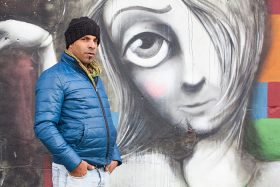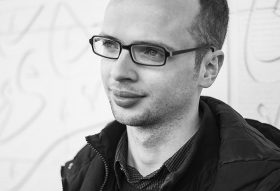Three Question for Anthropologists Dr. Dani Kranz and Katja Harbi

Photo: Katja Harbi
Our Academy programs regularly introduce new scholarship examining contemporary issues of migration and diversity. On May 4, University of Wuppertal anthropologists Dr. Dani Kranz and Katja Harbi will be presenting the results of the study they conducted, entitled Israeli Migration to Germany since 1990, with a lecture and show of photographs at the Jewish Museum Berlin. The research was largely about these immigrants’ identities and the significance of the Shoah for their lives in Germany, as well as the political and ideological debates occurring around them in Israel and Germany. We put three questions to the two anthropologists in advance of their presentation: → continue reading

Ármin Langer; Foto: Kat Kaufmann
As part of the series “New German Stories,” we will present the book Ein Jude in Neukölln. Mein Weg zum Miteinander der Religionen (A Jew in Neukölln. My path to the coexistence of religions) by Ármin Langer on 19 October 2016. The author, who will be our guest on this evening, will talk about his life as a Jewish activist and his experiences as coordinator of the Berlin Salaam-Shalom initiative that sets an example of peaceful Jewish-Muslim coexistence.
We asked Ármin Langer three questions:
Alina Gromova: Ármin, you decided at the age of 21 years to become a rabbi even though you are from a secular family. What led you to this decision back then?
Ármin Langer: Already as a child I was open to religion, but this feeling found no frame until I was 20. → continue reading

